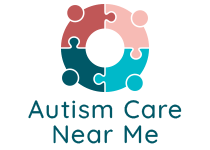Many people identify autism based on language and social interactions such as delayed speech, monotonous tone of voice, and constant repetition of words or phrases. However, as many as 40% of children with autism don’t speak at all. Those with non-verbal autism may be mistaken for mutes and not receive the speech therapy for autism spectrum disorder they need.
What is Non-Verbal Autism?
Most children who are only a few months old can understand basic communication. They’ll often point to things and use words like “mama” and “dada.” By two years of age, they should be able to form short two-to-four word sentences. Children should read between the ages of three and five. Books for their age group are elementary and full of short sentences and colorful pictures.
However, some children might lag behind their peers in speech and language. In some cases, the children are “late talkers” and have a limited vocabulary. In other instances, the child might have non-verbal autism.
Those with non-verbal autism either don’t speak or only say a limited amount of words. Some children with non-verbal autism can use certain words in a meaningful way, but can’t carry on full conversations. For example, one might say “dog” but not, “Can I pet your dog?” or “What’s your dog’s name?” Others might have trouble speaking but rely on written words, sign language, pictures, or digital communication devices.
Some children might be unable to speak as autism symptoms worsen and negatively impair their language abilities. Others might have childhood apraxia of speech or some neurological disorder which affects their verbal communication. However, these are rare cases and are the exception rather than the rule.
Some scientists have used fMRI scans and electroencephalograms to determine a non-verbal autistic child’s understanding of language. There’s no clear consensus, but it seems like many non-verbal autists can understand far more than they can speak.
What Are Other Signs of Autism?
Autism is a complex disorder with several different symptoms. Some children may show many signs; others none at all.
One of the leading indicators of autism is a lack of social skills development. Autistic children might want to keep to themselves, not respond to hearing their name, avoid eye contact and physical contact, and not respect personal boundaries.
Autistic individuals also may be obsessed with specific routines and behaviors. They might follow the same habits every single day and become extremely upset if it’s interrupted. Similarly, autistic children may strongly dislike environmental changes, even minor ones.
They might follow strange sleeping or eating patterns and have strong reactions to unwanted physical sensations. For example, an autistic child might strongly dislike a specific taste, smell, feeling, or sound that doesn’t bother others.
Lastly, autistic children often have trouble expressing or interpreting emotions. They might be unaware of how others feel or be unable to adequately show emotions such as:
- Joy
- Sadness
- Fear
- Compassion
An autistic child might not smile or laugh as much as other children do in similar situations.
What Should You Do if Your Child Has Non-Verbal Autism?
The first thing any parent should do is seek a professional diagnosis. Many children display a wide range of autistic-like behavior – such as repetitive actions, impulsive behaviors, and strong reactions to stimuli – that don’t necessarily infer autism. A professional diagnosis can tell you if your child needs further treatment from an autism spectrum disorder therapy program.
If your child does have non-verbal autism, the best solution is to get targeted intervention through speech therapy or an occupational therapy program, which can help ensure proper language and social skills development. A child’s first few years are critical for appropriate speech and language lessons – experts agree that it’s best to start before the age of 10. Starting too late might negatively impact future success. Some experts even say that children should learn language skills before the age of five for optimal effect.
It’s important to note that late language development is a sign of autism and that children who don’t speak now may develop such skills later on. That’s why a lot of medical professionals use the term “pre-verbal autism” instead of “non-verbal autism.”







